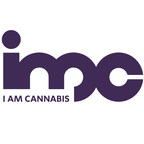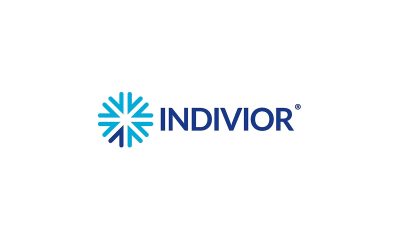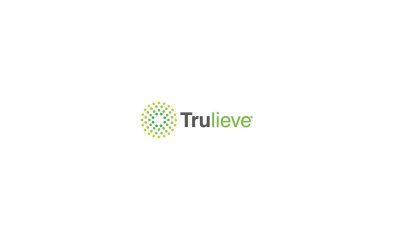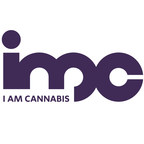/home/grassnews/public_html/wp-content/themes/zox-news/parts/post-single.php on line 153
">
Warning: Undefined array key 0 in /home/grassnews/public_html/wp-content/themes/zox-news/parts/post-single.php on line 153
Warning: Attempt to read property "cat_name" on null in /home/grassnews/public_html/wp-content/themes/zox-news/parts/post-single.php on line 153
The Patent Landscape for AI Technology
 Reading Time: 3 minutes
Reading Time: 3 minutes
AI has become a ubiquitous term today world, both inside and outside the tech landscape. It is not only a functional term that points to the power of technology but is also emotive. The ethos behind AI can be summed up in one word: potential. AI points to the future of what is possible.
Since its conception in 1956, innovators and researchers have published over 1.6 million AI-related scientific publications and filed nearly 340,000 AI-related patent applications. Machine Learning (ML) technology is included in 40% of these patent application claims. The functional applications underlying the majority of these patent applications are natural language processing, speech processing, and image recognition.
What is a patent?
A patent is a federal grant of exclusive right given to an inventor who receives an issued patent claim. It can last up to twenty years.
With a patent grant, United States Patent and Trademark Office (USPTO) confers patent owners with the “right to exclude others from making, using, offering for sale, or selling” the invention in the United States or importing the invention into the US.”
A valid patent bars protection for any subsequent independent invention by another inventor, deeming the later inventor the infringer. It is a powerful form of Intellectual Property (IP) protection that protects either the functionality or the aesthetic properties of an invention.
Is AI patent-eligible?
Any new and useful process, machine, article of manufacture or composition of matter may fall under the scope of subject-matter that qualifies for a utility patent. Since AI software is inherently a process, it can be patent eligible, as long as it meets the USPTO’s five rules for patent eligibility.
The rules are as follows: (1) The invention must be a process, machine, or object; (2) the invention must have utility; (3) the invention must be novel or new; (4) the invention must be non-obvious; and (5) the invention must not have been disclosed to the public before the patent application.
To qualify under ‘process, machine, or object’, says JD Houvener, USPTO-licensed attorney with Bold Patents, the subject-matter of the proposed AI patent application claim must cover a unique software invention that is either tied to a machine or that offers an identifiable improvement to society that humans can’t do alone. Where AI requires a computer, processor, or software to analyze or receive data, it is inherently a method with a practical application.
AI represents the ability of a computer to conduct, improve, or manage activities that humans can’t do alone. The sheer weight of that realization is incredible and points back to the concept of the vast potential of this emerging technology.
Most AI technology that is connected to a computer will be patent-eligible. If an invention qualifies, patent protection is an absolute must for inventors because it is such an evolving technological sector and the pace of change is fast. As such, the last thing an inventor wants is to miss out on ownership or exclusivity over what he or she developed.
AI Patent Landscape
International Data Corporation forecasted in 2017 that the AI industry will generate more than $57 billion in 2021. Efforts to patent AI inventions have exponentially increased, seen in how over 9,000 USPTO patent applications in AI-related areas were published in the last four years. There have been over 154,000 global AI patent applications filed since 2010, the majority of which are in the fields of health and digital security.
Microsoft and IBM are at the top of the pack in the AI patent landscape. Tech giant IBM leads with nearly 9,000 AI-related patent applications, followed by Microsoft with close to 6,000.
Effects of AI Patents
If the USPTO system does its job correctly, AI-related issued and pending patents will have a positive impact on the market. As new discoveries are made and new patents are issued, there will be more momentum for innovation which will better society in the long term.
In the short term, however, the USPTO system may reward the larger companies such as IBM and Microsoft rather than scrappy startups. This is because patents are expensive, time-consuming, and require resources that most new companies often don’t have the ability to use on IP protection.
However, more innovation by larger companies may reward the smaller and more agile companies in the long term. This would depend on whether smaller companies are reading and learning from issued patents, so the responsibility is upon them to watch for trends and use the dynamic force of AI in their research.
This article is a contribution of Carly Klein
About the author
Carly Klein is a first-year student at Loyola Law School. A Los Angeles native and a graduate from Boston University with a B.A. in Political Science & Philosophy, she seeks to pursue a career in civil litigation.

Warning: Undefined array key 0 in /home/grassnews/public_html/wp-content/themes/zox-news/parts/post-single.php on line 493
Warning: Attempt to read property "cat_ID" on null in /home/grassnews/public_html/wp-content/themes/zox-news/parts/post-single.php on line 493
Cannabis
Cannabis Concentrate Market to Cross US$2.4 Billion by 2030 amid Rising Medical and Recreational Demand
transfer
IMC to transfer its Oranim Pharmacy shares back to the seller

TORONTO and GLIL YAM, Israel, April 16, 2024 /PRNewswire/ — IM Cannabis Corp. (CSE: IMCC) (NASDAQ: IMCC) (the “Company” or “IMC“), a leading medical cannabis company with operations in Israel and Germany, is announcing that, further to the news release dated January 12, 2024, the Company has decided not to make remaining installment payments installments (i.e. NIS 5,873K including interest or 2,154K CAD) by IMC Holdings Ltd., and as such will transfer the 51% shares held by IMC Holdings Ltd back to the seller.
“With the April 1st cannabis legalization in Germany, we are focusing our resources on the German market, where we expect to see the biggest growth potential,” said Oren Shuster, CEO of IMC. “With both of our core markets, Germany and Israel, currently undergoing rapid evolution, we need to assure that we allocate our resources to the growth opportunities where we expect the best return on investment.”
About IM Cannabis Corp.
IMC (Nasdaq: IMCC) (CSE: IMCC) is an international cannabis company that provides premium cannabis products to medical patients in Israel and Germany, two of the largest medical cannabis markets. The Company has recently exited operations in Canada to pivot its focus and resources to achieve sustainable and profitable growth in its highest value markets, Israel and Germany. The Company leverages a transnational ecosystem powered by a unique data-driven approach and a globally sourced product supply chain. With an unwavering commitment to responsible growth and compliance with the strictest regulatory environments, the Company strives to amplify its commercial and brand power to become a global high-quality cannabis player.
The IMC ecosystem operates in Israel through its commercial relationship with Focus Medical Herbs Ltd., which imports and distributes cannabis to medical patients, leveraging years of proprietary data and patient insights. The Company also operates medical cannabis retail pharmacies, online platforms, distribution centers, and logistical hubs in Israel that enable the safe delivery and quality control of IMC’s products throughout the entire value chain. In Germany, the IMC ecosystem operates through Adjupharm GmbH, where it distributes cannabis to pharmacies for medical cannabis patients. Until recently, the Company also actively operated in Canada through Trichome Financial Corp and its wholly owned subsidiaries, where it cultivated, processed, packaged, and sold premium and ultra-premium cannabis at its own facilities under the WAGNERS and Highland Grow brands for the adult-use market in Canada. The Company has exited operations in Canada and considers these operations discontinued.
Disclaimer for Forward-Looking Statements
This press release contains forward-looking information or forward-looking statements under applicable Canadian and U.S. securities laws (collectively, “forward-looking statements”). All information that addresses activities or developments that we expect to occur in the future are forward-looking statements. Forward-looking statements are often, but not always, identified by the use of words such as “seek”, “anticipate”, “believe”, “plan”, “estimate”, “expect”, “likely” and “intend” and statements that an event or result “may”, “will”, “should”, “could” or “might” occur or be achieved and other similar expressions. Forward-looking statements are based on the estimates and opinions of management on the date the statements are made. In the press release, such forward-looking statements include, but are not limited to, the occurrence of growth opportunities and the likelihood of growth potential.
Forward-looking statements are based on assumptions that may prove to be incorrect, including but not limited to: the development and introduction of new products; continuing demand for medical and adult-use recreational cannabis in the markets in which the Company operates; the Company’s ability to reach patients through both e-commerce and brick and mortar retail operations; the Company’s ability to maintain and renew or obtain required licenses; the effectiveness of its products for medical cannabis patients and recreational consumers; and the Company’s ability to market its brands and services successfully to its anticipated customers and medical cannabis patients.
The above lists of forward-looking statements and assumptions are not exhaustive. Since forward-looking statements address future events and conditions, by their very nature they involve inherent risks and uncertainties. Actual results may differ materially from those currently anticipated or implied by such forward looking statements due to a number of factors and risks. These include: any failure of the Company to maintain “de facto” control over Focus Medical in accordance with IFRS 10; the failure of the Company to comply with applicable regulatory requirements in a highly regulated industry; unexpected changes in governmental policies and regulations in the jurisdictions in which the Company operates; the effect of the reform on the Company; the Company’s ability to continue to meet the listing requirements of the Canadian Securities Exchange and the NASDAQ Capital Market; any unexpected failure to maintain in good standing or renew its licenses; the ability of the Company and Focus Medical (collectively, the “Group”) to deliver on their sales commitments or growth objectives; the reliance of the Group on third-party supply agreements to provide sufficient quantities of medical cannabis to fulfil the Group’s obligations; the Group’s possible exposure to liability, the perceived level of risk related thereto, and the anticipated results of any litigation or other similar disputes or legal proceedings involving the Group; the impact of increasing competition; any lack of merger and acquisition opportunities; adverse market conditions; the inherent uncertainty of production quantities, qualities and cost estimates and the potential for unexpected costs and expenses; risks of product liability and other safety-related liability from the usage of the Group’s cannabis products; supply chain constraints; reliance on key personnel; the risk of defaulting on existing debt and war, conflict and civil unrest in Eastern Europe and the Middle East
Any forward-looking statement included in this press release is made as of the date of this press release and is based on the beliefs, estimates, expectations and opinions of management on the date such forward-looking information is made.
The Company does not undertake any obligation to update forward-looking statements except as required by applicable securities laws. Investors should not place undue reliance on forward-looking statements. Forward-looking statements contained in this press release are expressly qualified by this cautionary statement.
Company Contacts:
Anna Taranko, Director Investor & Public Relations
IM Cannabis Corp.
+49 157 80554338
[email protected]
Oren Shuster, Chief Executive Officer
IM Cannabis Corp.
[email protected]
Logo – https://mma.prnewswire.com/media/1742228/IM_Cannabis_Logo.jpg
![]() View original content:https://www.prnewswire.co.uk/news-releases/imc-to-transfer-its-oranim-pharmacy-shares-back-to-the-seller-302117984.html
View original content:https://www.prnewswire.co.uk/news-releases/imc-to-transfer-its-oranim-pharmacy-shares-back-to-the-seller-302117984.html

Cannabis
Right on Brands Announces Major Product Line Expansion via HONEY® Brands
-
Avant2 weeks ago
Avant and IMC Execute BLK MKT™ Trademark Licensing Agreement for the German Medical Cannabis Market
-

 StickIt1 week ago
StickIt1 week agoStickIt Technologies Inc. Announces Year-End 2023 Financial Results
-
Cannabis1 week ago
Hemp, Inc. Welcomes USDA Approval of GMO Hemp Strain – A Step Forward in Cannabis Biotechnology
-

 Cannabis1 week ago
Cannabis1 week agoAvicanna Announces Completion of Topical Gel Observational Real-World Evidence Study
-

 Cannabis1 week ago
Cannabis1 week agoIM Cannabis and Flora Growth Partner to Bring Vessel Cannabis Accessories to the Israeli Market
-
Cannabis1 week ago
Right On Brands, Inc. Continues Rollout, Announces 13th Store Opening
-
Cannabis1 week ago
Tilray Brands, Inc. Reports Q3 Fiscal 2024 Financial Results
-
Cannabis1 week ago
Geopulse Exploration, Inc. Acquires 50% of ATC Services

















